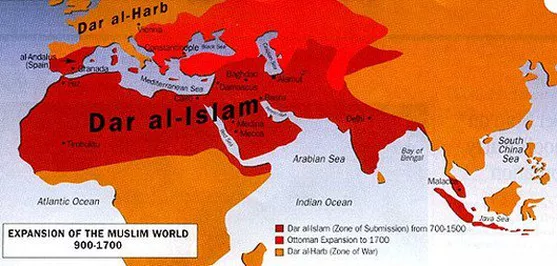 understand as a Muslim living in America. The topic was Politics in Islam. Dr Maszlee, interestingly enough, would often have to cancel classes throughout our few semesters with him, because he had the more pressing matter of counseling some young men in prison who were bent on joining ISIS. He was quite “literally” fighting terrorism! Diffusing potential threats, young ticking time bombs, who may have left a very destructive imprint on the world.leo.
understand as a Muslim living in America. The topic was Politics in Islam. Dr Maszlee, interestingly enough, would often have to cancel classes throughout our few semesters with him, because he had the more pressing matter of counseling some young men in prison who were bent on joining ISIS. He was quite “literally” fighting terrorism! Diffusing potential threats, young ticking time bombs, who may have left a very destructive imprint on the world.leo.
Here are some of the amazing lessons we learned in Dr Maszlee’s class about what the scholars have said about Dar ul Islam vs Dar al Harb/Dar al Kufr. (As a precursor, here is a video I made about “6 Ways Islam forbids Terrorism“, also taken from the lessons learned in Ustadh Maszlee’s class).
THE DIVISIONS OF THE WORLD MADE BY SCHOLARS REQUIRES A REVISIT
The world was once a more chaotic place. Before the United Nations was created and treaties were common between countries, it was a dog eat dog world, every nation for herself. Everyone was out for everyone else’s land and power. If you weren’t building an army to protect yourself, it was likely you would be invaded, your women raped, your children captured.
In this time of war and constant turmoil in much of the world, scholars who were in these more chaotic regions, came up with the following divisions of the world: Dar ul Islam [Land of Islam] versus Dar ul Harb [Land of War (also referred to as Dar al Kufr Land of Disbelief)]. You were either a Muslim country with a Muslim government (Dar ul Islam), or you were a non-Muslim country and thus a potential threat and enemy (Dar ul Harb).

These simple divisions made by our scholars were perhaps understandable for the time, circumstance and place in which they came about. It was a chaotic dangerous time where fear lurked at every border. It was understood by scholars and laymen alike that a Muslim should ONLY live in Dar ul Islam because Dar ul Harb would be inevitably dangerous and Muslims would be persecuted there. It became impermissible even, according to some scholars, for a Muslim to move to Dar al Harb, as it would either be harmful for them or it would be seen as them colluding with the enemy.
A NEW DIVISION IS CREATED – “DAR UL AMAN”
With the passage of time, however, countries evolved, nations evolved, governments evolved, and the circumstances evolved. A basic legal maxim in Islamic law is “لا ينكر تغير الأحكام بتغير الزمان” Do not reject the changing of rulings by the changing of times. Now that much of the world is not at war with one another, that there is not a constant threat in most of the world of being invaded by your neighboring country, these divisions should – and actually have been – revisited by many scholars. According to those who have revisited these divisions, namely Shaykh Yusuf al Qardawi, Dar ul Islam remains Dar ul Islam – a Muslim country with a Muslim governance, but Dar ul Harb/Kufr is a title that can only be given to a country which is openly hostile towards Muslims and persecutes Muslims for their faith, disallowing them from practicing their religion.
A new division was created called “Dar ul Aman” meaning “Land of Safety”. So long as a non Muslim government allows mosques to be created, allows Muslims to pray and practice their faith, then that land would be considered Dar ul Aman – a land of safety. Similar to how Ethiopia (Abysinnia) was a safe place for Muslims to reside during the era of Prophet Muhammad (S), even though it was a Christian kingdom ruled by Christian law. It was a land of safety for the Muslims, and Prophet Muhammad (S) encouraged the Muslims to reside there.
Today, it is evident that a majority of the countries of the world fall under the category of Dar ul Aman – because much of the world has peaceful relations with Muslims, allowing them to migrate to their countries, reside there, and practice their faith within it. In Dar ul Aman, all residents, both Muslim and non Muslim within those countries become a “Mu’ahid” which literally translates to “people of a treaty”. Because when they are at peace with Muslims, then Muslims are at peace with them – it is a treaty of peace. According to Rasulullah (S) himself, a Mu’ahid has very important rights from all Muslims. Prophet Muhammad (S) said “Whoever kills a mu’ahid, he will never smell the fragrance of Paradise.” [Bukhari] The scholars defined “mu’ahid” as a non-Muslim whose country has a treaty of peace (even if temporary) with a Muslim country, or a non-Muslim from a country at war with Muslims who is given protection during his stay in the Muslim country. His life, property, and family is protected – his blood is not to be spilled. The one who kills the mu’ahid, his abode is the Hellfire.
That means that all residents of any country that is peaceful and accepting of Muslims are under a contract of peace and safety. Even if there is hostility and pushback, as long as the Muslims are able to freely practice their faith, then the contract remains.
MUST WE BE IN PERPETUAL CONFLICT WITH NON MUSLIMS?
Oftentimes, the main source of confusion comes from a few Quranic verses that some have interpreted to mean we cannot take non-Muslims as “friends”, that we must hate them and disassociate with them, and be in perpetual conflict with them.
Among those verses are the following: “O you who have believed, do not take the Jews and the Christians as awliyaa” (Surah Maidah:51), and “O you who have believed, take not those who have taken your religion in ridicule and amusement among the ones who were given the Scripture before you nor the disbelievers as awliyaa.” (Surah Maidah: 57). While some translations pin “awliyaa” as “friend”, many scholars including Shaykh Yusuf al-Qardawi say awliyaa carries a much stronger meaning, moreso of a protector, a guardian. Hence these verses are not meant to forbid a friendship with non-Muslims, nor to encourage hatred to non Muslims, but rather to not take them as allies or protectors politically IF they are amongst those who are persecuting Muslims.
In another verse, Allah says “O you who have believed, do not take My enemies and your enemies as awliyaa, extending to them affection while they have disbelieved in what came to you of the truth, having driven out the Prophet and yourselves [only] because you believe in Allah , your Lord” (Surah Al-Mumtahanah: 1). This verse specifies further that it is not all non Muslims who are not to be taken as allies, but rather the “enemies” amongst the non-Muslims who drove out the Prophet (S) and the Muslims through persecution and torture. This verse was revealed in response to one of the companions of the Prophet (S) in Madinah who, fearing for the safety of his family in Makkah, sent a secret letter to warn the Quraish of Makkah of an impending Muslim attack. Allah is rebuking this man for taking the Quraish as political allies against the Muslims since the Quraish were at that time persecuting Muslims.
So it is clear that a political alliance should not be forged with non Muslim countries whose governments are persecuting Muslims. As for upholding peace, creating a treaty, and acting kind towards those non-Muslims who are neither at war with nor hostile to Muslims, that is encouraged, as Allah says in the Quran: “Allah does not forbid you, with regard to those who do not fight you on account of your religion nor drive you out of your homes, to treat them with goodness (birr) and to be just to them; truly, Allah loves those who are just.” (Surah Al-Mumtahanah: 1) . The word “birr” or goodness, which is used in this verse, encompasses all types of generosity and kindness. It’s the same word used to explain how a Muslim should treat his parents.

This means that the default between Muslims and non-Muslims as well as Muslim and non-Muslim governments is PEACE so long as long as there is no persecution, torture, or war between the two governments. And once these two countries are decidedly at peace with one another, the citizens are considered mu’ahid in the Shariah, meaning their money, property and life is sacred to Muslims. Anyone who harms a mu’ahid, then as Rasulullah (S) mentioned, they will not even smell paradise – their abode is the hellfire.
These lessons have been imperative in my understanding of Islam and its relationships with the world, and I am grateful to my teachers who have enlightened me with these truths. Without these understandings of our deen, one could easily be swayed and fall into the trap of those with a political agenda or perverted understanding of the religion. May Allah allow us to see the truth as truth and the falsehood as falsehood. Ameen.
Safiya Ravat graduated with a degree in Islamic Jurisprudence (Fiqh and Usul al Fiqh) from the International Islamic University of Malaysia, as well as a Journalism degree from the University of Houston. She and her husband live in Dallas, TX where they are working under the Bayyinah Foundation. Full bio here. Follow them for more videos and posts on Facebook at Mahad and Safiya.
